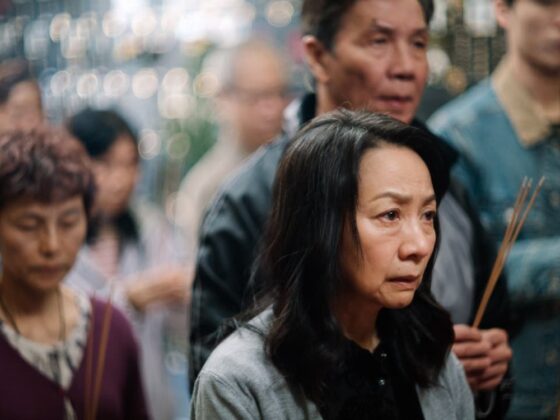On 5 September 2023, we heard the good news of the Court of Final Appeal allowing in part an appeal from SHAM TSZ KIT (岑子杰) in relation to the recognition of same-sex marriage in Hong Kong in the decision of SHAM TSZ KIT (岑子杰) v Secretary for Justice [2023] HKCFA 28.
The CFA, by majority, declared that the Government has a positive obligation under the Hong Kong constitution to establish an alternative framework for legal recognition of same-sex partnerships in Hong Kong, that provides for appropriate rights and obligations.
This Judgment is a huge step forward for the local LGBTQ+ community and a milestone win in their long fight for equality. In this article, we shall explore the potential changes in the family/private client context that we hope to see following the Judgment.
Background
Sham, a Hong Kong permanent resident, entered into a same-sex marriage in New York in November 2013. As the marriage was not legally recognized in Hong Kong, Sham brought a judicial review application against the Hong Kong Government, contending that it is a violation of his constitutional rights that there is no provision for same-sex marriages in Hong Kong, nor any recognition of foreign same-sex marriages. Sham’s case proceeded through the High Court and Court of Appeal, where it was dismissed. Sham then appealed to the CFA.
The CFA was asked three questions:
- Whether the exclusion of same-sex couples from the institution of marriage constitutes a violation of the right to equality;
- Whether the laws of Hong Kong, in so far as they do not allow same-sex couples to marry and fail to provide any alternative means of legal recognition of same-sex partnerships (such as civil unions or registered partnerships), constitute a violation of the right to privacy (or private lives) and/or a right to equality;
- Whether the laws of Hong Kong, in so far as they do not recognise foreign same-sex marriage, constitute a violation of the right to equality.
The CFA’s decision
The CFA unanimously answered Question 1 and Question 3 in the negative. It was held that the current constitutional framework does not confer the right to same-sex marriage. Only the right to opposite-sex marriage is protected. Hence, it is impossible to “read into” the current constitutional provisions a right to same-sex marriage, or a right to have foreign same-sex marriage be recognized in Hong Kong.
However, majority the CFA answered Question 2 in the affirmative. The focus on this question is on the system’s failure to provide for any alternative means of legal recognition of same-sex partnerships. The CFA agreed that it is necessary for same-sex couples to have access to an alternative framework for legal recognition for same-sex relationships for 2 main reasons:
- i. that such recognition is required to meet their basic social needs similar to those experienced by opposite-sex couples; and
- ii. that the absence of legal recognition has been seen to be essentially discriminatory and demeaning to same-sex couples.
In this context, the CFA gave examples on the difficulties experienced by same-sex couples in real life, including one partner being denied visiting rights, medical information, participation in decision-making regarding the other’s medical treatment if the other partner is hospitalized, and same-sex couples not being protected by the law in relation to asset division when their relationship comes to an end.
The CFA agreed that a lack of an alternative framework for legal recognition of same-sex relationships is an infringement to their right to private lives. Further, it was held that the Government has a positive obligation to put in place a framework for conferring official recognition on the relationship between same-sex couples by some form of registered union.
As a result, the CFA allowed the appeal on Question 2, and made the following rulings:
- (a) A declaration that, the Government is in violation of its positive obligation under Article 14 of the Hong Kong Bill of Rights to establish an alternative framework for legal recognition of same-sex partnerships (such as registered civil partnerships or civil unions) and to provide for appropriate rights and obligations attendant on such recognition with a view to ensuring effective compliance with the aforesaid obligation.
- (b) It is directed that operation of the abovementioned Declaration be suspended for a period of two years from the date of the final Order to be made after receipt of the parties’ written submissions, to afford the Government time to comply with its aforesaid obligation.
Possible changes following the Judgment
It was not specified in the Judgment how the said alternative legal framework for recognizing same sex relationships is to be designed. However, it is anticipated that such framework should provide similar rights and legal protections as married opposite-sex couples.
In the family context, this would mean that, firstly, recognized same-sex couples should be offered the same protection under the current Hong Kong laws governing opposite-sex marriage and the end of a marriage, including, for example, Married Person Status Ordinance (Cap. 182), Matrimonial Causes Ordinance (Cap. 179) and Matrimonial Proceedings and Property Ordinance (Cap. 192). The Married Person Status Ordinance offers protection on a person’s property within a marriage. The Matrimonial Causes Ordinance and Matrimonial Proceedings and Property Ordinance provides for a legal framework for divorce and judicial separation when the relationship comes to an end.
In practice, it is not uncommon to see same-sex couples in Hong Kong, who married overseas, being faced with huge difficulties when they wish to be divorced from their spouse. These couples cannot get divorced in Hong Kong because Hong Kong does not recognize same-sex marriage overseas. Most of the time, they cannot get divorced overseas either because they do not meet the jurisdictional requirements of the overseas courts (e.g. being a citizen of the said jurisdiction, having lived and worked in the jurisdiction for a certain number of years, etc.). In fact, it is a common misconception that one will be able to divorce in a certain jurisdiction only by reason of having been married in the jurisdiction. In reality, this is often not enough, and sometimes, having gotten married in the said jurisdiction is not even one of the grounds for a court to have jurisdiction over the divorce.
Being unable to divorce when the relationship comes to an end will have huge impact on marital asset division upon a divorce. Under the current law, Hong Kong Courts are unable to make any rulings on the status of the parties’ relationship nor division of marital assets upon the end of a same-sex partnership. This will mean that, whilst opposite-sex couples will be entitled to claim a part of the marital assets and/or spousal maintenance upon a divorce, same-sex couples do not have the same protection. One can only imagine the financial difficulties that a partner will face if he/she is being maintained by the other partner throughout the relationship and do not have any substantial assets and income for him/herself. They will have no legal recourse to ask for any spousal financial provision from the other party despite having contributed to the relationship in non-monetary ways.
With an alternative framework recognizing same-sex partnerships, it is hoped that recognized same-sex couples could be provided the same protection as married opposite-couples in the event their relationships come to an end.
Secondly, we hope that recognized same-sex couples will be provided the same rights to adopt children in Hong Kong. Currently, if same-sex couples wish to adopt, only one partner will be able to officially adopt, as the option of “joint adoption” is only available to opposite-sex married couples. This will mean that by default, only one partner will be granted parental rights to the adopted children once the adoption process is completed. This is clearly highly undesirable, because the other partner will not have the legal status to arrange the children’s affairs, including, for example, signing them up for schools and making decisions on medical treatments.
To rectify this issue, upon getting an adoption certificate, the other partner will have to apply to the Court for guardianship of the adopted children, so that he/she can have a certain degree of rights (and obligations) to the children as his/her other half. It is clearly unfair that same-sex couples will have to go through this additional step and incur legal fees on their own whilst opposite-sex married couples have access to more streamlined adoption procedures.
Further, during the adoption process, the Social Welfare Department and the Court will have already made necessary observations and assessment of the same-sex couple planning to adopt (even though the applicant of the adoption is only one of the partners). The fact that the Court will have to entertain another set of application for guardianship based exactly on the same facts and circumstances is a highly undesired use of judicial and public resources, especially given how heavily loaded the Courts are nowadays.
One would hope that, with the implementation of alternative framework recognizing same-sex partnerships, recognized same-sex couples could enjoy the same rights as married couples wishing to adopt.
On a separate note, the fact that “joint adoption” is not available to same-sex couples means that it will be very difficult for male same-sex couples to adopt a female child in Hong Kong. This is due to section 5(3) of the Adoption Ordinance (Cap. 290), which provides that “an adoption order shall not be made in respect of an infant who is a female in favour of a sole applicant who is a male, unless the Court is satisfied that there are special circumstances which justify as an exceptional measure the making of an adoption order.”.
This restriction does not apply to joint applicants. In the context of opposite-sex married couples wishing to adopt a female child, this hurdle is by-passed by signing up both intended parents as the applicant for the adoption. However, as same-sex couples are unable to adopt jointly, male same-sex couples will be unable to adopt a female child unless they satisfy the Court that there are “special circumstances” present which will justify the adoption. There are very limited case laws in Hong Kong as to what “special circumstances” are.
Whilst an alternative framework recognizing same-sex partnerships will unlikely directly result in this provision being repealed, it is hoped that the said framework will draw attention to this provision which seems antiquated and a misfit in the current times.
In the private client context, we also hope that with the said framework, the question of whether a surviving recognized same-sex partner would be offered the same protection to the other partners’ estate in the event of the death of the other partner can be finally settled.
The above mainly relates to the Intestates’ Estates Ordinance (Cap. 73) and the Inheritance (Provision for Family and Dependants) Ordinance (Cap. 481). Whilst it has been ruled in Ng Hon Lam Edgar v Secretary for Justice [2020] 4 HKLRD 908 that surviving married same-sex partners shall be given the same protection as surviving opposite-sex spouse under the Intestates’ Estates Ordinance and the Inheritance (Provision for Family and Dependants) Ordinance, the Government has expressed that they intended to appeal this Judgment.
We therefore hope that with the CFA judgment, there will be no further appeals in this regard, and that married same-sex couples can put their minds at ease as to their legal entitlement to each other’s estate.
Conclusion
The CFA has given the Government 2 years to put in place an alternative framework recognizing same-sex partnerships in Hong Kong. However, with the extensive potential legislative changes that might follow, it will be unsurprising if we need more than 2 years before the changes can be seen.
Nonetheless, we certainly welcome the CFA’s decision in SHAM TSZ KIT (岑子杰) v Secretary for Justice and are hopeful for the potential changes following this Judgment. This no doubt aligns Hong Kong with other leading common law jurisdictions in terms of achieving equality for the LGBTQ+ community.
The Hong Kong LGBTQ+ community has come a long way – from having to hide their relationship in fear of criminal consequences pre-1991, until now, 23 years into the 21st century, that we finally see them being given the rights as people who just happen to like the opposite sex. Once again, this CFA decision has proven that we must never give up in the battle for justice. This is a major victory in our age-long battle, and we hope that this is a good sign for more positive changes to come.
Our team at Hugill & Ip has extensive experience in dealing with LGBT Rights, Family and Private Client issues – so if you need further advice on these subject, get in touch with us.
This article is for information purposes only. Its contents do not constitute legal advice and readers should not regard this article as a substitute for detailed advice in individual instances.




